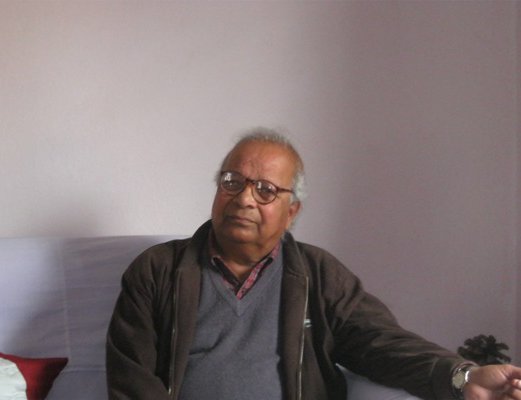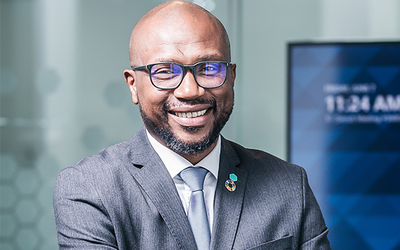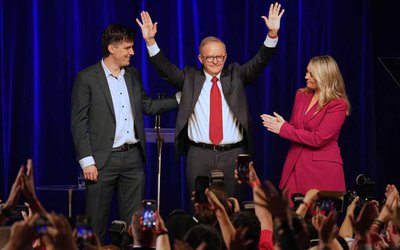
Much muddy water has flowed down the Bagmati since the much-touted fusion of jana aandolan (popular movement) and janyuddha (people’s war) ushered in a sea-change in Nepali political landscape. Monarchy has been replaced by a republic. Moves are afoot to replace the unitary state with a federal structure. The bloody Maoist insurgency has ended. “The people’s warriors” have been merged into a one-time “royal” national army. Final efforts are being made under an interim constitution to draft a new statute to replace what was once touted as the world’s best constitution. Amidst such mind-boggling changes, there have been persistent concerns over the future of Nepal. Instead of ending the country’s crisis for good, it has deepened. Peace, stability and progress have become something limited to the public speeches of the leaders and the so-called intelligentsia. The frustrations of the general people over the failure of the state to deliver the goods for their good are threatening to assume a dangerous proportion. Nepal has become a fertile ground of foreign manoeuvring and the games of the big powers. Never had Nepal been as weak and vulnerable as it is today. As we mentioned seven years ago, extremism still threatens to replace moderation. With political forces gearing up for the battle royale, it is still a finish-or-be-finished confrontation not a live-and-let-live reconciliation that hits the headlines. We had mentioned then that the majority has remained a silent spectator. It is still the case. Not many have braved the odds to vent the voice of the silent majority. Eminent lawyer and analyst GANESH RAJ SHARMA was one of the few who did it. The interview he gave to VIJAYA KUMAR PANDEY of the-then talk show “Frontline” on the Kantipur Television remains valid even today. We reproduce the excerpts of a 30-minute interview with the scholar who enjoyed the confidence of Nepal’s first democratically elected Prime Minister B.P. Koirala as well as the late King Birendra. The translated version of the interview was published in SPOTLIGHT (October 28, 2005)
You believed that the monarchy can not hang on to extremism for long.
Yes. The monarchy’s character does not allow this. Nepal's monarchy cannot afford the extremism for long for two reasons. One, this institution which is based on traditional values and beliefs functions under the popular consent. Two, it also depends on loyalty and obedience of the army, police and administration. So, it cannot rely on only one of them. The monarchy cannot embark on a lonely journey on a single leg, while ignoring the popular support.
But extremism appears to be reaching its extreme. Don’t you think that the middle way has no future?
No, not at all. The middle way is crucially necessary to preserve the independence of the country and to bring about its transformation. The middle way is linked with the future of the country. The two cannot be separated otherwise, Nepal's independence will be jeopardized and the modernization weakened. Give it any name, national reconciliation, middle way or a mutual compromise, we simply can not do without it.
How many political forces are there in Nepali politics?
Six -- four internal and two external.
Who are the internal forces?
One, the monarchy.Two, the organized army.Three, the organized political parties.Four, the ordinary people. Known as a silent majority, the fourth force is decisive. This silent majority is not active all the time but it has a decisive role. It speaks up either during the election or in the rebellion. The two external forces are also important. Even super powers cannot bypass them and impose their will on Nepal on their own.
Who are the external forces?
The immediate neighbors -- India and China. They are there since the unification of Nepal by king Prithivi Narayan Shaha. Nepal still remains a yam between two boulders as explained by him more than two hundred years ago.
What about the other force – the Nepal Communist Party (Maoist)?
You have to find it within the six forces I mentioned. The Maoists have not established themselves as a separate force.
How can you say this when they have been making their presence felt across the country?
If outside force gives weapon, shelter and training to someone, it means that there is a very powerful force behind. One has to reckon with that force.
Isn’t it too simplistic an assessment?
I am convinced on my analysis.
So, you rule the Maoists out as a force.
I said that they are within the six forces that I mentioned earlier. They are not a separate force. You have to find them within the internal or external forces.
Is there any difference between the organized political parties and the silent majority?
There are certain common points of agreements and disagreements among the internal forces. One of the points of agreement is that none wants to see Nepal under foreign control and dictated to by foreign powers. All of them love the country’s independence. The dispute is over how much power one should have and how it is exercised. This is natural in any progressive society. Nepal is not an exception. Questions such as how much authority the king wants, whether the king should remain a mere spectator etc are decided by the silent majority. Once the silent majority decides, every one has to accept the verdict. It does speak up only occasionally -- but decisively. It speaks up either during the elections or the rebellion. Nepali politics would never have been turbulent had it remained within the gambit of the internal forces. Even international actors would have cared less.
Don't you think that the army does not have a separate identity and that it is a part of the other force -- the monarchy?
We had the experience of army rule by Jung Bahadur Rana. He ruled the country on the strength of the army. The army had already shown its power, in the past.
Can’t a king fail to see the interest of the monarchy?
Yes he can, but at his own peril. That will be his foolishness.
Following the February 1 take-over, don't you see that king Gyanendra is not concerned about the long-term interest of monarchy?
I agree that the immediate actions have not been in the interest of the institution of monarchy. At the same time, I would like to give the benefit of doubt to the king. He might have certain compulsions due to other forces. The monarchy is not that powerful to be able to reverse the tide of sea. There are other powerful actors as well. So I can not blame the king only, without taking into account the actions and reactions of other actors.
About the political parties. What are their interests?
To wield power through the people’s participation.
In an earlier interview, vice chairman of the council of ministers, Dr. Tulsi Giri, said that the dispute between the king and the parties is over the sharing of power...
He also mentioned the role of external forces. According to his own observation, there are not two players only – the king and the people. There are other players as well.
Do you agree that the dispute between the king and the people is over the exercise of power?
Yes.
That’s what Dr. Giri also said. That there can not be two power centers. He argues that the people’s power should be exercised through the institution of the monarchy not through the parties.
I do not buy that argument. When the king has been saying that the people are the supreme, why should one buy Giri’s argument. The king is clear in his statements that the people are the sources of power. In real sense, the representatives of the people are the allies of king. The monarch’s instrument to rule does not come from outside in an artificial manner. It must come from the people. Election is a means to choose such people. The king not only announced the municipal elections but he surprised by declaring parliamentary elections without even consulting his cabinet members I heard that this was not a cabinet decision. That’s why I strongly believe in the institution of monarchy. The point is: the interest of the king and that of his ministers are different. The king cannot rule the country by ignoring popular forces for long time. The present ministers do not have such compulsion.
How do we understand the role of external forces?
Let me quote the late B.P.Koirala in this context. He wrote during his seven years in Sundarijal jail in the 1960s, that “there are other dangers to democracy more than monarchy and the king will also see that there are other dangers to monarchy more serious than democracy.” Our immediate neighbors may be friendly with us on most issues, but not on the question of their security. They attach more importance to their security than friendship with us. This applies to both China and India. To take the case of India, for instance, the Indian politicians may have been liberal towards us but security agencies such as army, intelligence agencies are not. This is the conflict within India vis-à-vis its relations with Nepal.
That may be the case, all right. But Nepal’s internal forces have also not been able to sort their differences out.
In the course of power sharing and tussle for the leadership, personal egos and ambitions do also intensify the conflict. There are forces which support and back one group against another. It was amidst this background that a new constitution was promulgated in 1990. King Birendra and the leaders of political parties agreed on the document. Suddenly, in 1996, when a sovereign parliament was functioning and sovereignty was being exercised by the government in accordance with this document, a foreign power begins arming and training a rebel group that does not believe in monarchy and parliamentary democracy. This is an open secret, but no-one dared to speak out.
But we have a long tradition of importing weapons from India, no?
It is not as simple as that. If you look at the history you will see that whenever a government in Nepal is deemed unfavourable, rebel groups are nurtured and weapons are supplied to them. If Maoists were not there, there would have been other armed groups today.
International forces would always be there. It is not unnatural for them to play their games. But should not the internal forces keep their house in order to minimize the influence of external forces? What should be the role of monarchy in this regard?
Yes, we need to realize that other forces will take advantage if we keep fighting. There is no denying that the king and the parties must reconcile. Both share a common interest, i.e. nationalism. But the internal forces have not been able to tell a real enemy from a true friend. B.P. Koirala, who braved odds to bring monarchy and people together, always remained an isolated lonely figure.
Is not it natural for external powers to poke their nose into our affairs when internal forces keep fighting?
But no-one seems to realize this. Instead, what we see is that red carpets are rolled out for the intruders. We have strained our relations so much that we are ready to offer bouquets to external players.
So, how do you think should the internal divisions be narrowed?
The onus of taking the initiative lies in the bigger and the taller figures. In an earlier interview, I had categorically said that the king had greater responsibility. At that time, I had expected the king to initiate two measures to resolve the present crisis. Either re-instate the dissolved parliament as a temporary way-out or call new elections for a permanent solution followed by moves to create an atmosphere conducive to the free and fair polls.
What should be the point of agreement for reconciliation?
For reconciliation, you don’t necessarily need flowery and poetic enunciations. You may even criticize each other, burn tires and heat up the battle on the street. But now that the king has announced elections you must take it as an achievement. If a conducive environment is created for the polls, you do not even talk to each other. If good works are being done, exchange of harsher statements will not matter. If rival politicians can come out of bitter hostilities seen during the elections and the parliamentary debate to get along and be friendly with each other as we have seen in the past, there is no reason why all political forces can not come together for the larger cause of the country. You must understand that what the parties want is power and the elections is the only ladder to reach the seat of power.
What is your prescription to cure the present ills?
Despite hurdles, we are much better off than many other countries such as Iraq, Cambodia and Afghanistan. Unlike them, we already have organized and tested political parties, a constitution and several other institutions in place.
You are trying to blame others for all the mess that we are in. Don’t you agree that if the king and the parties worked together, other forces would not find any space to play a spoilsport here?
I have enough credible basis to back up my argument. If the king and the parties saw the common dangers from the outside, a reconciliation is very much possible. The two need to trust each other.
Some people argue that the present constitution is incomplete and that a new constitution is the only answer to the present crisis
Instead, it will only deepen the crisis and prolong the uncertainties. How long do you want to deprive the people the right to vote? At present, the choice is between the evils. We have to choose the lesser evil. The present constitution is the lesser evil. Political parties are the lesser evil. The king is the lesser evil. If you create an environment for the external forces to play here, that would be the bigger evil. Between the external forces on one hand and the king and the political parties on the other, I will choose the latter. In so far as the king and political parties are concerned, I don't need to choose, as they are complementary to each other.
If you are still asked to choose between the king and the parties?
What will you do if the army steps in? So, I don’t feel secure without the king. If the king leaves the country as Prince Sihanouk did in Cambodia, the military may step in. Whom would you look to rescue you in such an event?
But the army can come under the political parties.
The present modern army does not rely on thoughts alone – conservative or liberal. Its professional organization and skills compel it to seek its own role. Thus, we need to work to promote the commonalities of interest of the king and the parties. The king's interest lies in the stability in the nation. The political parties can not think of democracy sans the nation’s independence. When the king said that nationalism is a meeting point, it means that there is a common meeting point with the political parties.
How about the Maoists?
As I said earlier, they have to fit in either with the political parties, which would be more honorable and dignified for them, or with other powers which propelled them..
Do you mean that it is the responsibility of the king to create a conducive environment?
Yes, he needs to show more patience and courage than the political parties. Compared to the political parties, the king is on a bigger trial. He has to deal with our neighbors, manage internal peace and transfer the power to the people. So his wisdom, character, courage and restraints are on trial.
- MELAMCHI WATER SUPPLY: No Interruption During Monsoon
- Jun 25, 2025
- KOREAN RETURNEES: Successful Integration
- Jun 25, 2025
- UPPER TRISHULI-1: Engaging With Local
- Jun 25, 2025
- IME GROUP: Twenty Five Years Of Journey
- Jun 24, 2025
- NEPAL’S AIR POLLUTION: A Growing Health Concern
- Jun 24, 2025















